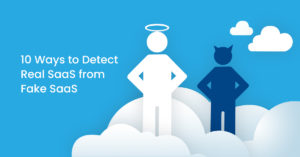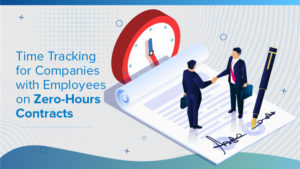How to Avoid Typical IPO Pitfalls: The Importance of Putting HR in the Cloud

Following 2021’s record year for initial public offerings (IPOs) on U.S. exchanges, the global IPO market witnessed a drastic slowdown in the first half of 2022. According to data from Stock Analysis, over 70 companies have withdrawn their IPO filings since the beginning of March 2022. These numbers are telling that It’s high time for companies to start accepting the inescapable fact that – from pinpointing revenue leakage to filling out compliance requirements – the process of launching an initial public offering is not for the faint of heart.
An initial public offering (IPO) poses huge challenges and presents regulatory issues that many founders and human resource executives are unfamiliar with or unprepared for. The complexity of these issues can create many pitfalls that can jeopardize an organization’s IPO. This article helps you navigate IPO pitfalls by highlighting the critical role of putting HR in the cloud for efficient IPO planning and execution.
The Challenging Road to IPO
In today’s business environment, going public is much different than it used to be five to ten years ago. Rapid regulatory change – including Sarbanes-Oxley compliance – puts additional and significant pressure on an organization’s infrastructure. As a result, market windows for an initial public offering (IPO) open and close much more quickly. Companies that plan early and invest the time to learn the requirements and pitfalls and implement best practices are much more likely to have a successful IPO.
When companies go public, they expose themselves to unprecedented levels of scrutiny. If authorities find abnormalities in reporting, compliance, and/or legal structuring, it can result in delays and stiff fines. For example, Morgan Stanley, the lead underwriter for Facebook’s 2012 IPO, was ordered to pay $5 million (£3m) in fines to the US state of Massachusetts for advising the company to reveal revenue forecasts to select clients before actually floating. This prompted numerous Wall Street analysts to lower their growth predictions just as Facebook went public.

Read more: Morgan Stanley fined $5 million over Facebook IPO
Also, last year, a Wells Fargo senior client associate was fined $5,000 and suspended for changing dates and account numbers on various customers’ IPO forms to make them appear more current.
The consequences don’t end with fines, however. Companies can miss the precious market timing advantage that can make or break an IPO. Investors are more comfortable putting their money into stocks, and thus IPOs, when markets are rising. If a market is falling, investors balk; this is one explanation for why Facebook’s stock initially fell after its IPO.
Twitter timed its market entry more successfully, but imagine what would have happened if the Twitter IPO was delayed by a compliance issue, and meanwhile, the market fell? It would have been a game-changer, and not in a good way.
HR and the Cloud
Human resources management is one of the biggest and most decentralized components in any IPO. Timesheets, payroll, resource allocation, billable revenue – the list of moving parts goes on and on, and all pieces apply to a company’s reporting and, ultimately, its valuation. No wonder nearly 60 percent of companies are planning to implement new, cloud-based HR systems.

The cloud enables businesses to easily centralize and streamline many disparate parts, and in an IPO, that is essential. Placing functions such as payroll, recruiting, and training in the cloud enables companies to collect and review data in a single, coherent system. This data transparency, in turn, reduces the risk of missing information that may be non-compliant. In addition, centralizing data gives enterprises greater insight into their costs and into what drives their business performance. They are empowered to discover, control, and manage not only costs but time, which is a crucial enterprise asset.
Making the Cloud Work Pre-IPO
To prepare, a company should put systems into place that make it simple to evaluate compliance and respond to market realities in a transparent manner. Businesses must also gather and organize audited financial statements using IPO-accepted protocols and ensure that corporate governance is accountable and consistent.

Historically, there have been plenty of IPO filings that have not leveraged HR technology, but that was before employees were able to interact with HR, anytime and anywhere, via mobile time-tracking apps, project management software and the like. PWC’s Roadmap for an IPO research suggests that proactively addressing an organization’s human resources issues during a public offering can help increase its chances of success. Savvy entrepreneurs would do well to embrace the new world of HR right away so that when the time comes to file, they’re already equipped.
Conclusion
Placing HR in the cloud is an important step in pre-IPO planning. Companies can use the right cloud-based software to empower workers to enter time against projects, tasks, or clients, request PTO, and access approvals workflows via the mobile device of their choice. This enables companies to track employee time from any iOS or Android device, thus ensuring accuracy in expenditure, even for a distributed, global workforce. Cloud-based HR systems and processes significantly contribute to an organization’s ability to successfully launch its IPO and continue to impact performance throughout and after the IPO.
Other benefits of moving HR management to the cloud include ensuring greater accuracy in employee reporting and budgeting, as well as increased visibility on expenditures. In turn, these benefits decrease the risk of revenue leakage. In addition, effective HR solutions allow supervisors to monitor time, resources, and project data in real time, catching problems before they grow. And they can streamline the process of reviewing, approving, and processing timesheets, thus saving hours of work and increasing productivity.
In short, the right cloud-based technology can empower a company to maximize the potential of its most valuable resources – people and time. By streamlining disparate human resource modules on cloud systems, a company can establish accountability, transparency, and efficiency that ensure IPO success.
Raj Narayanaswamy is the co-founder and co-CEO of Replicon, a specialist in cloud time tracking applications.








